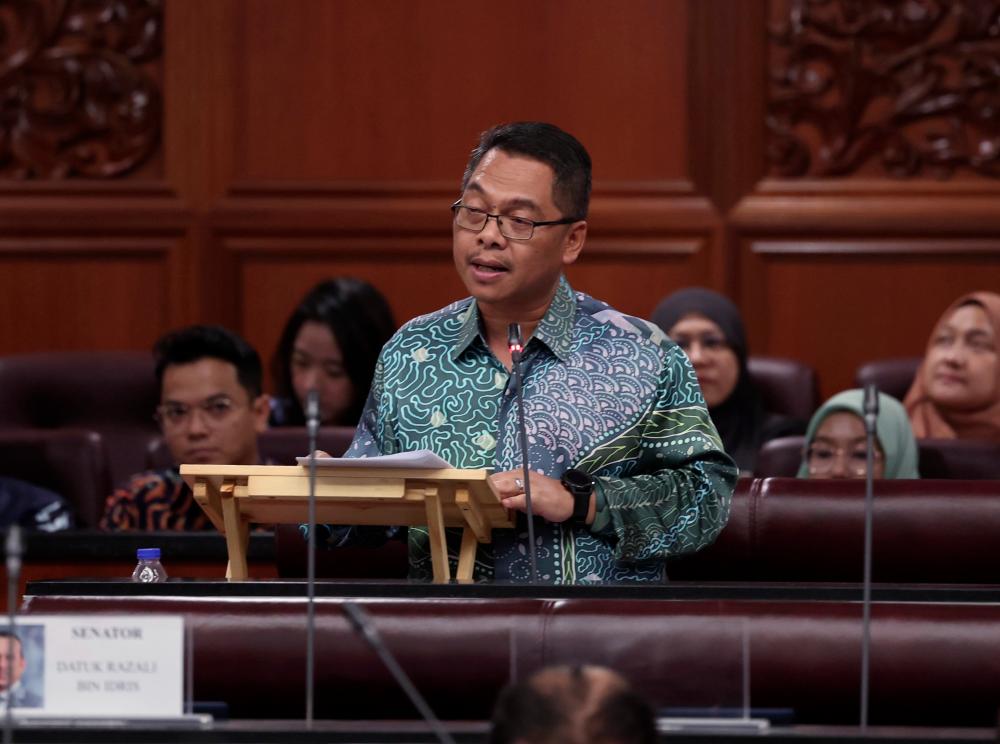PETALING JAYA: Talent Corporation Malaysia Berhad (TalentCorp) launched an industry-driven council on Dec 1 to focus on developing talent that are skills-ready for the future.
Human Resources Deputy Minister Datuk Mustapha Sakmud who officiated at the event, said a Future Skills Talent Council (FSTC) would be established in every state.
He said FSTC would be key in addressing Malaysia’s talent challenges, such as unemployment, underemployment or talent mismatch, and unutilised talent pools.
“Through FSTC, the government can collect important data to identify job mismatches, skills gaps and unemployment among talents before they graduate.
“This information can be used across all ministries and agencies to create interventions based on evidence, ensuring the country’s workforce is ready for current and future industry needs.”
Mustapha said FSTC will also set the benchmark for wages based on skill levels of qualified workers, which will rise in tandem with productivity and competency.
“Offering competitive salaries to local talent with specific skills could (encourage them) to join the economic sectors. This will motivate them to keep upskilling and reskilling to meet future demands.”
He also said the initiative is timely and in line with Malaysia’s aspirations to attain high-income nation status and fulfil the Madani economy goals.
“With an investment of RM95 billion, the New Industrial Master Plan 2030 will focus on revitalising the nation’s manufacturing sector.
“The plan prioritises the creation of high-income jobs, providing opportunities for 3.3 million Malaysian youths and fostering growth opportunities for SMEs and other industries.”
TalentCorp Group CEO Thomas Mathew said Malaysia has a young talent source that can potentially meet investor needs.
“The median age in Malaysia is 30 and 50% of that is under 15. In comparison, Thailand’s median age is 39, Singapore’s is 42, and Japan’s is 49.
“Despite our demographic advantage, we also face deep-rooted talent challenges of skills-related underemployment.”
Mathew said skills related underemployment has been one of the underlying structural problems in the labour market and has become worse since the Covid-19 pandemic in 2020.
“According to the Statistics Department, Malaysia had 5.06 million employed graduates in 2022. Of this, 37.3% were underemployed in terms of their skills.
“Also, over a third of graduates are earning below their potential and struggling to cope with the rising cost of living.”
Mathew said youths are discouraged from pursuing higher education, with most of them preferring gig work, in which they earn an immediate income stream, adding that this creates a chain reaction, potentially stunting economic growth and development.
He said FSTC will play a key role in identifying the skills needed for the respective sectors.
“Through collaborative efforts and partnerships with various agencies and industry stakeholders, FSTC will drive the necessary training so talents and skills are upgraded based on current and future needs.”
Mathew added that FSTC will first focus on the electrical and electronic (E&E) industry, followed by information and communications technology.
“Last year, the E&E sector recorded a remarkable 30% year-on-year growth. We are exporting more to the US and China, which is about 20% or 22% of all exports by value.
“FSTC will help technical and vocational skills in line with the government’s efforts to boost the Technical and Vocational Education and Training space and reduce dependence on foreign labour.”
Mathew said FSTC for the E&E industry will also focus on B40 candidates, providing SPM leavers and unemployed graduates with opportunities to have an improved standard of living.









